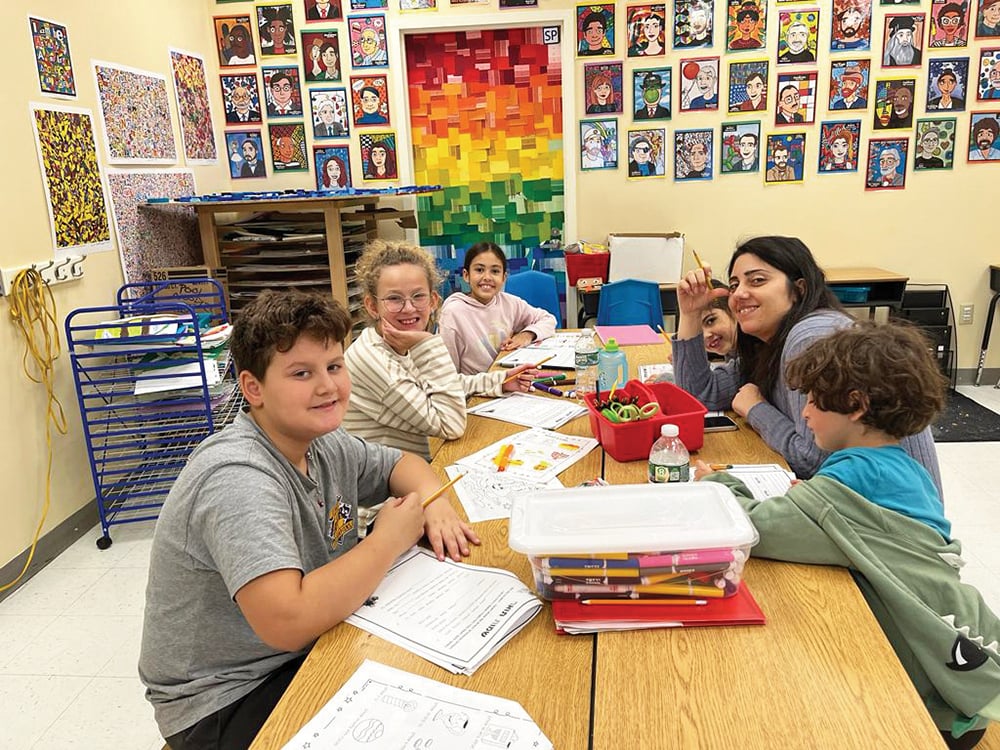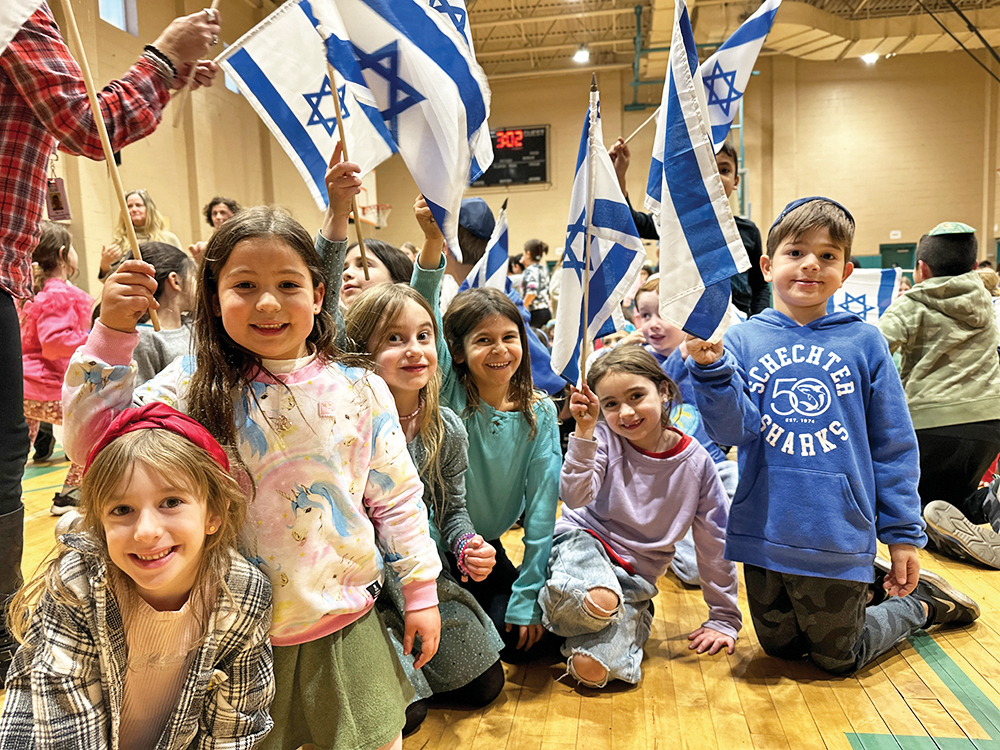Part I of a series

Editor’s note: If your school has taken in students from Israel and would like to be featured in this series, please email editors@jewishlink.news.
Since October 9, a number of local day schools have thrown their doors open wide to welcome Israeli students who have been here since the war broke out. Some were already here and could not get back so easily, while others arrived after being displaced or were just in need of some respite from the constant barrage of sirens and rocket attacks.
The Joseph Kushner Academy/Rae Kushner Yeshiva High School in Livingston had the privilege of taking in some of these students. Head of School Rabbi Eliezer Rubin said, “The first time that we received a question from a family about taking in these students, it wasn’t a question on whether it would be ‘if’ but rather, ‘how.’ We’re doing this because this is who we are as an institution from the teacher level to the presidents, the board and the school administration. It’s complete, consistent messaging from us.”
Kushner now sees to the educational needs of about 25 students who came from Israel because of the war. Among those students is a senior whose stepbrother, H”YD, served in a Golani unit and was tragically killed early on.

“From the beginning we worked with the teachers to absorb the children as seamlessly as possible, looking at the learning profiles of the students,” Rabbi Rubin said. But as the number of students started to increase, the school decided to hire a parent liaison to manage the families and their needs, handle communication, and discuss their concerns and what the school would need for them on a regular and ongoing basis. When the parent liaison reached out to the parent community asking for volunteers to help students work on their English skills, the response was enthusiastic and overwhelming. “We knew going into this what was involved and went in with our eyes wide open. It has exceeded all our expectations of goodness,” he added.
Rabbi Rubin continued: “The teachers have been heroic. For them to absorb students in the middle of the year when the routines are already set, paying attention to their regular students while also supporting both the emotional and the learning needs of the students who came has been extremely inspiring.” He said the same holds true for the guidance team. “These children are coming in carrying their own trauma with them and it is going to take a long time for them to unpack this.”
Because the school is imbued with a strong sense of religious Zionism, the rabbi said the students find it very validating and comforting, and the parents are so appreciative. “It’s a great place for them to land. It will impact these children and their parents for many years to come, the way that they have experienced the warmth and the embrace of our community.”
Solomon Schechter Day School of Bergen County (Schechter Bergen) has also been hosting Israeli students. Head of School Steve Freedman said the school started receiving calls October 9, initially from families who were already here for the chagim. But the calls kept coming in and Schechter Bergen took the youngsters in. Before long, the school counted 44 Israeli students at its peak and that number remains fluid, with some having left and others still set to come. “No one thought twice about it. It’s just what we do.
“Our teachers have been wonderful about just going with the flow,” Freedman added. “Fortunately we have a lot of Hebrew speakers in our school.” When the school put out a call for volunteers to come help support the students and teachers, the response exceeded all expectations.
Schechter Bergen immediately put the Israeli students in the classes with all the other students to give them the opportunity to socialize. “We want them together with our children. It’s an amazing experience for these kids to interact, and a lot of them have become fast friends and have been very supportive of each other.”
The first few families have recently returned to Israel and Freedman said that it was very difficult. “One little boy in fourth grade told his new Israeli friend that he was going to tie him to a string and hold him back so he couldn’t get on the plane.”
For the older students, Freedman said it was a whole different social dynamic in trying to figure out how to keep the kids connected and in touch. “It has been a profound experience for the students and the parents.” Freedman himself had just returned from Israel and described the trauma as “palpable,” which gave him a different perspective of the families who left for a while to bring their kids here.

“What we’re doing, along with all the other schools in our community, is just another example of Am Yisrael. The fact that we really are one people, one family, and we’re here for each other … Our family, our people were in need and we opened our doors. … That’s the power of the Jewish people.”
Lubavitch on the Palisades in Tenafly created a program called “Acheinu” to help absorb the Israeli students that have come to their school because of the war. The program is geared towards Israeli students in grades 1-5. It runs from 9 a.m. to 1 p.m. Mondays through Thurdays, where they learn their subjects in Hebrew with a Hebrew-speaking teacher who also came in from Israel to help keep them up to grade level. The students socialize with the rest of the kids during recess, lunch, art, gym and any other special periods that take place in the school. “The teacher is able to differentiate between the subject areas, and it has been amazing,” said Orite Rubenstein, Lubavitch on the Palisades’ preschool director.
For early childhood the school has established Gan Shemesh, which is a program designed for 3- and 4-year-olds who recently came from Israel.
For sixth to eighth grades, the school decided to integrate the kids into the regular classes while also providing them with some English as a second language (ESL) instruction. “I feel at that age, students from Israel often have just enough of an English background and foundation to be able to communicate with other kids their age.” Middle School Principal Meital Teitelman also felt that it would be extremely beneficial for the permanent students to be able to learn from the experience how to be welcoming, flexible and create connections.
“I love seeing our regular students interacting with the Israeli children,” Teitelman added. LPS already boasts several students who speak Hebrew fluently. “I see how their eyes light up when they see a student from Israel. They literally and figuratively embrace them and take them under their wing, explaining everything to them.
“We talk about Israel, we dream about Israel, we want to be there for them and this is the time to actually put our words into action and really make the kids feel what it’s like to be a part of it and being real brothers and sisters, no matter how far away we live. It’s a great opportunity for all of us.
“It’s the least we can do, and it’s an honor and a privilege to be able to do it.”










